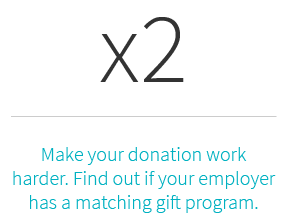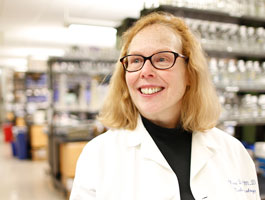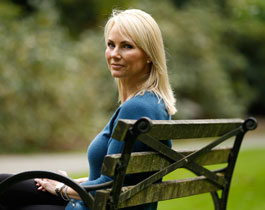Donate to the Rivkin Center
Every donation helps people live longer and healthier lives because cancers are prevented, caught early, or cured.
When you donate to ovarian cancer research, you provide hope for thousands of people and their families.
Donate Stock
Deepen your impact and increase your tax savings by donating stock directly to Rivkin through Overflow.
Donate by Mail
Send your contribution to:
Rivkin Center
1200 12th Ave S, Suite 1110
Seattle, WA 98144
Donate by Phone
Contact Halie Steward at (206) 584-2010 to make a donation by phone using your credit card. Or to request our ACH/EFT account details.
Donate by Employer
Make your donation work harder. Find out if your employer has a matching gift program.
Planned Giving
MAKE AN ESTATE OR PLANNED GIFT
Donors who make an estate or planned gift, such as including a bequest to the Rivkin Center in their will, are invited to become members of the Saul Rivkin Legacy Circle. The Legacy Circle was established in recognition of our founder, Dr. Saul Rivkin, and his relentless quest to end the pain and suffering caused by ovarian cancer.
BENEFITS OF MEMBERSHIP
- Special recognition in the Rivkin Center’s Annual Report to Donors
- Invitations to events, receptions, behind-the-scenes tours, recognition events, and educational forums hosted by the Rivkin Center
For more information about the Saul Rivkin Legacy Circle or making a planned gift to the Rivkin Center, please contact Kim Issac at kim.isaac@rivkin.org.

HOST YOUR OWN CANCER-FIGHTING FUNDRAISER
Host or organize your own fundraising event to increase awareness about ovarian cancer and raise money to support the Rivkin Center mission. Contact kim.isaac@rivkin.org for fundraising event ideas!
SPONSOR A CHARITABLE EVENT
The annual SummeRun & Walk for Ovarian Cancer and the Rivkin Center Family & Friends Auction are incredibly important fundraising events — and a great way to help out. Corporate sponsorship provides vital revenue to make these events a success and shows the community your company’s commitment to ending ovarian cancer.
Sponsor the SummeRun & Walk for Ovarian Cancer, the Rivkin Center Family & Friends Auction, or the biennial Ovarian Cancer Research Symposium. Contact kim.isaac@rivkin.org for more information.
ATTEND OR VOLUNTEER AT AN EVENT
Each of our signature fundraising events are an annual tradition in the Seattle area. The success of these events depends strongly on the attendance and participation of the community, as well as on volunteer support. To volunteer, email info@rivkin.org to learn more.

“The Rivkin Center plays an important role in fueling ovarian cancer research and has invested over 13 million dollars in support of original research and young investigators.”
Name a Research Grant
SPONSOR A RESEARCH GRANT IN A LOVED ONE’S HONOR
Medical breakthroughs through research offer the greatest opportunity to advance the knowledge of ovarian cancer. The Rivkin Center model — investing in innovative ideas, attracting the most ingenious research minds, and leveraging funding to help investigators secure larger grants — has effectively advanced prevention, early detection, and treatment of ovarian cancer.
Sponsoring this work in the name of someone you love is not only a vivid tribute; it’s also an enormous gesture of hope for the future. Awards named for patients provide a particularly poignant reminder to researchers of the importance of their work, bringing home the vital impact of their efforts to further ovarian cancer research.
We invite donors to review a list of scientists who’ve been selected to receive Rivkin Center funding through our formal grant-making process, choose someone to sponsor for the term of the grant award, and name the award in honor or memory of a loved one.
Grant sponsors receive copies and lay summaries of their grantee’s final report and recent publications relevant to this research.
We award several different kinds of research grants:
- Pilot Study Award (two-year naming: $75,000)
- Scientific Scholar Grant (one-year naming: $60,000)
- Bridge Funding Award (one-year naming: $30,000)

I promised my mom that none of her girls would ever have to go through what she did. While we hated the ovarian cancer diagnosis, mom viewed it as a gift to me and her granddaughters.”
Katerie Schei, Family Member & Donor
Other Ways to Give
MAKE AN IN-KIND DONATION
Both the Rivkin Family & Friends Auction and the SummeRun & Walk for Ovarian Cancer depend on the generous donations of the local community. If you or your business can contribute a unique item or experience to the auction, or can donate snacks, beverages, or equipment for the SummeRun, please contact events@rivkin.org.
See the impact that donors like you have made on ovarian cancer research and ovarian and breast health education.

